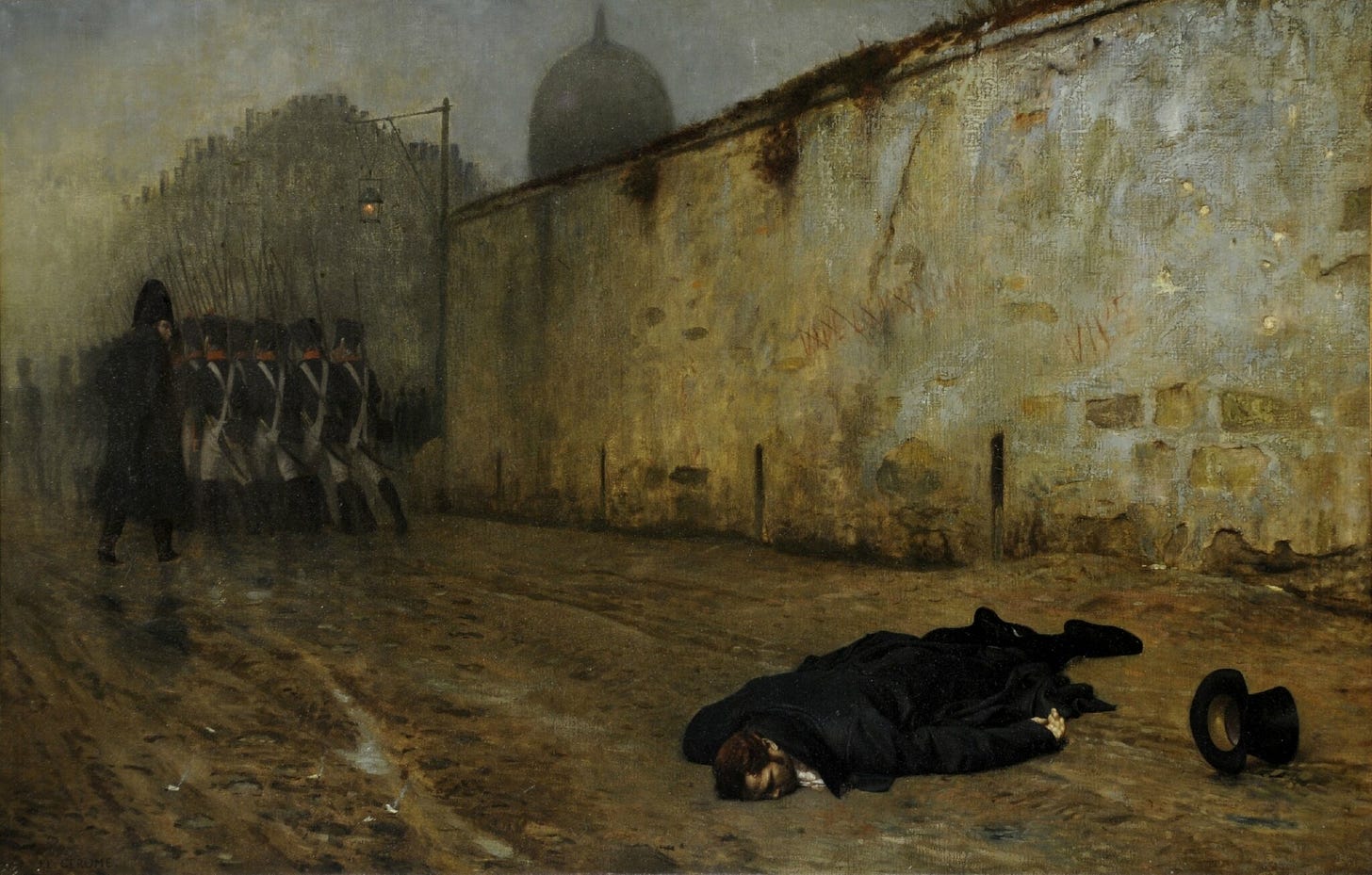My Heart Belongs to DADA
Delayed Activation Defection Agreements in Syria and Afghanistan
“How did you go bankrupt?” Bill asked.
“Two ways,” Mike said. “Gradually and then suddenly.”
“What brought it on?”
“Friends,” said Mike. “I had a lot of friends. False friends." 1
The Syrian civil war ended in an avalanche of acquiescence. As the forces of the winning coalition raced down the country’s main highway, its enemies gave up, switched sides, or melted away. Thus, rather than meeting his Waterloo, Syrian dictator Bashir al-Assad suffered the sort of defeat experienced by Louis XVIII, when, in March of 1815, the soldiers sent to arrest Napoleon Bonaparte, recently returned from his exile on Elba, tore off their royal cockades and rallied to their once-and-future emperor.
This phenomenon drew much of its power from the cascading quality of collapse. No one, after all, wants to be the last rat to try to leave a sinking ship. It also owed much to the forbearance of the winners, who, as far as I can tell, refrained from inflicting insult, let alone injury, upon erstwhile enemies who attempted to surrender, defect, or disappear.
With this in mind, I find myself wondering if the officers who declined to fight may have been fulfilling contracts made ahead of time. That is, the minions of Bashar al-Assad may have entered into ‘delayed activation defection agreements’, by which they traded the on-call options for the turning of their coats for promises of immunity and, perhaps, eventual employment by the new regime.
Of course, in a regime as well supplied with secret policemen as that of Mr. Assad, the discussions leading to such a deal would present problems for both the insurgent proposing such a bargain and the officer contemplating acceptance. Thus, I can imagine a that, in addition to making explicit arrangements with specific senior soldiers, the rebel authorities promised immunity from future prosecution to all who, in the moment of truth, prevented their subordinates from offering resistance. (The existence of such a ‘limited time offer’ accords with the announcement, made the day after the capture of Damascus, of an automatic amnesty that applied to all who had been conscripted into the armed forces of the previous regime, but not their officers.)
Something similar happened towards the end of the most recent war in Afghanistan. When their forces stood at the gates of Kabul, the Taliban announced a general amnesty for all Afghans who had served with in, or with, the armed forces of their enemies. ‘We reiterate’, tweeted a Taliban spokesman on 15 August 2021, ‘that the Islamic Emirate does not intend to take revenge on anyone, all those who have served in the military and civilian sectors in the Kabul administration are forgiven and safe, no one will be retaliated against.’ 2
The proclamation of this universal pardon followed a fifteen-month program to encourage individual members of the Afghan National Army to surrender. Under this scheme, Afghan soldiers who surrendered to the Taliban received full amnesty and enough travel money to return to their homes, as well as cash bonuses for any weapons they turned in.3
While the amnesty offered by the Taliban pardoned its beneficiaries for their adherence to the state they overthrew, it did not cover all actions that such people may have taken in the course of their service. Thus, soon after the fall of Kabul, the Taliban began to use courts martial, beatings, extra-judicial murder, and kidnapping to retaliate against many of its erstwhile enemies.4
Some of the intended victims of this payback campaign escaped the worst of this payback campaign by presenting local authorities with ‘letters of forgiveness’. Officially, these documents bore witness to investigations that cleared the person in question of serious wrongdoing.5 However, I would not be surprised to discover that some of them were issued in consideration of services rendered in the course of the march on Kabul.
Ernest Hemingway The Sun Also Rises (New York: The Modern Library, 1926) page 141
Andrew Quilty August in Kabul: America’s Last Days in Afghanistan (Melbourne: Melbourne University Press, 2022) page 53
August in Kabul page 16
Anonymous and Patricia Gossman No Forgiveness for People Like You (New York: Human Rights Watch, 2021) pages 1-3
No Forgiveness for People Like You page 2







War by other means.
Oh my .